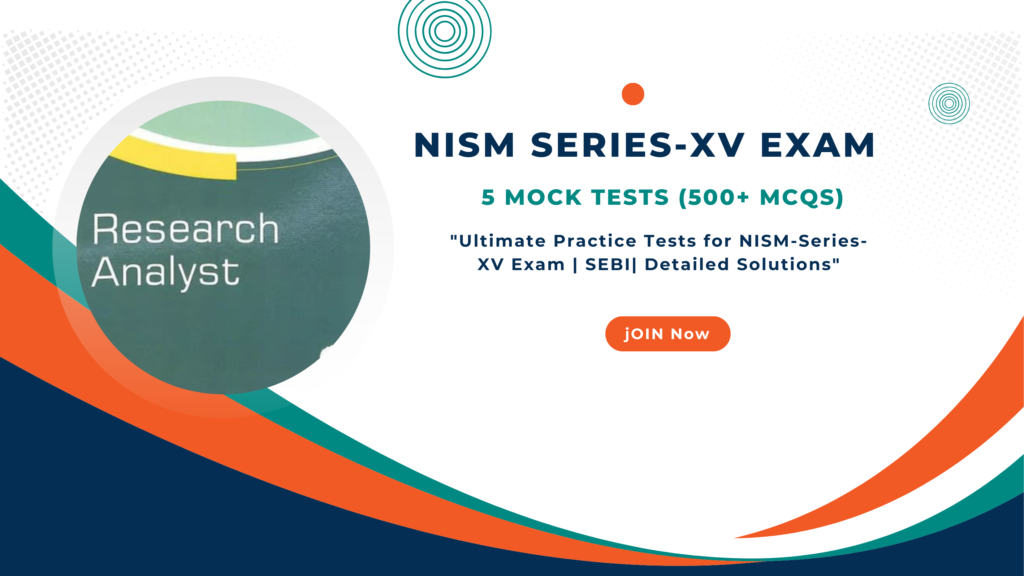There’s a transformative experience awaiting as you commence on your NISM Research Analyst (RA) exam preparation journey. This blog post will guide you through crucial strategies, resources, and study techniques that will empower you to master the exam content effectively. Whether you’re new to research analysis or looking to enhance your skills, you can leverage these insights to bolster your confidence and knowledge. Dive in as we outline the steps you need to take to ensure a successful and comprehensive preparation process.
1. Understand exam syllabus to plan effective study schedule. 2. Gather quality study materials and official NISM guides. 3. Focus on practical concepts and real-world applications. 4. Practice previous year question papers for exam familiarity. 5. Join study groups for discussions and doubt clearing. 6. Regularly revise topics to strengthen retention and understanding.
Understanding the NISM Research Analyst Exam
A comprehensive understanding of the NISM Research Analyst Exam is crucial for your preparation. This certification plays a vital role in enhancing your skills in securities research, equipping you with the necessary tools to analyze financial markets effectively. By familiarizing yourself with the exam structure, topics, and syllabus, you will be better positioned to tackle the rigors of the examination.
Exam Structure and Format
Around 100 multiple-choice questions make up the NISM Research Analyst Exam, designed to test your knowledge of various aspects of financial research and analysis. The exam spans a duration of 120 minutes and evaluates your understanding through a mix of theoretical concepts and practical applications, ensuring a well-rounded assessment of your skills.
Key Topics and Syllabus Overview
Below are the primary topics covered in the NISM Research Analyst Exam, which include Economic and Market Analysis, Company Analysis, and various Financial Instruments. These areas will not only sharpen your analytical skills but also prepare you for real-world investment decision-making.
Further exploration of these key topics will enable you to grasp crucial concepts such as financial statements, valuation techniques, and effective investment strategies. Delving into market dynamics and understanding how global events can influence local markets will help you connect theoretical knowledge with practical applications. This comprehensive syllabus not only prepares you for the exam but sets a strong foundation for a successful career in research analysis.

Importance of Preparing for the Exam
You should prioritize preparing for the NISM Research Analyst Exam as it lays the foundation for your understanding of financial markets and securities analysis. A well-structured study plan not only familiarizes you with the exam format but also equips you with necessary knowledge and skills necessary to excel in your career. Dedicating time and effort to your preparation can significantly enhance your confidence and efficacy as a future research analyst.
Career Opportunities with NISM Certification
With an NISM certification, you open doors to various career opportunities in the financial services sector, including roles in equity research, portfolio management, and investment advisory. This globally recognized credential enhances your employability and distinguishes you from other candidates in a competitive job market. Employers often seek individuals who possess formal qualifications, making your NISM certification a valuable asset for advancing your career.
Enhancing Analytical Skills
With focused preparation, you will develop and refine your analytical skills, which are indispensable for a successful career in finance. Analytical skills enable you to assess financial data, identify trends, and make informed investment decisions. A comprehensive understanding of research methodologies and market analytics will enhance your capability to analyze complex financial reports and derive actionable insights.
Hence, investing time in your preparation will significantly contribute to your analytical competence. By mastering key concepts such as financial ratios, valuation techniques, and various research methods, you equip yourself to tackle real-world financial challenges effectively. The ability to interpret vast amounts of data analytically will not only serve you within the exam but also within your professional journey, making you a vital asset to any organization in the financial sector.
Creating an Effective Study Plan
Once again, a well-structured study plan is vital for your success in the NISM Research Analyst Exam. It helps you organize your time and resources effectively, ensuring that you cover all necessary topics comprehensively. By breaking down your preparation into manageable segments, you can foster a more focused study environment, allowing for better retention and understanding of the material.
Setting Realistic Goals
Plan your study sessions by setting achievable goals for each week. Define what you aim to accomplish, such as mastering specific topics or completing practice questions. This will keep you motivated and provide a clear sense of direction throughout your preparation journey.
Allocating Time for Each Topic
After identifying your study goals, it’s time to allocate time for each topic. This ensures that you dedicate sufficient attention to areas that require more focus while balancing your overall study plan.
Realistic allocation of time not only allows you to dive deeper into complex topics but also helps in managing your energy levels throughout the preparation process. Start by assessing the weight and your prior knowledge of each subject, then distribute your study hours accordingly. By crafting a timetable that reflects these considerations, you can maintain a steady pace, leaving room for revisions and practice assessments as you progress.
Recommended Study Resources
Despite the challenges that come with preparing for the NISM Research Analyst Exam, selecting the right study resources can significantly streamline your learning process. A combination of textbooks, online courses, and webinars will equip you with the knowledge needed to succeed. Ensure that you gather diverse resources that cover all exam topics thoroughly and comprehensively.
Textbooks and Study Guides
Among the most effective study materials for your NISM RA exam preparation are well-structured textbooks and study guides. These resources offer in-depth coverage of key concepts and provide practice questions to assess your understanding. Look for guides specifically tailored for the NISM RA exam, as they will target the necessary syllabus and exam format.
Online Courses and Webinars
Resources available through online courses and webinars can enhance your understanding of complex topics. Interactive formats allow for an engaging learning experience, giving you the opportunity to grasp important concepts through visual aids and expert discussions.
For instance, platforms offering structured online courses often provide video lectures, practice tests, and downloadable materials that align with the NISM syllabus. Engaging in live webinars gives you direct access to industry professionals and the chance to ask your questions in real time. This dynamic approach can significantly boost your confidence and knowledge retention, ultimately preparing you well for the exam.
Practice and Mock Tests
Now that you’ve covered the theoretical aspects of the NISM Research Analyst Exam, it’s time to put your knowledge to the test. Engaging in practice and mock tests will not only help you familiarize yourself with the exam format but also build your confidence. These assessments simulate the actual test environment, allowing you to manage your time effectively and identify areas needing improvement before the big day.

Visit the site below for the Mock Test for RA :-
Importance of Practice Papers
By regularly practicing with mock tests and previous years’ papers, you enhance your understanding of the exam’s structure and types of questions. This familiarity can significantly reduce anxiety on exam day, as you will know what to expect. Moreover, it offers an opportunity to reinforce your learning, helping you remember key concepts more effectively.
Analyzing and Learning from Mistakes
Along your preparation journey, you will inevitably encounter mistakes. Analyzing these errors is a valuable part of your learning process, as it reveals your weaknesses and highlights areas that need more focus.
At this stage, take time to review each incorrect answer carefully. Identify whether your misunderstanding stemmed from a lack of knowledge, misinterpretation of the question, or careless mistakes. By breaking down your mistakes, you can develop targeted strategies to address these gaps and strengthen your overall understanding. This reflective practice can greatly enhance your performance and boost your confidence as you approach the exam day.
Tips for Exam Day
Many candidates find the exam day stressful. To help manage this, consider the following tips:
- Arrive at the exam center early.
- Double-check that you have all necessary materials (ID, admit card, pens).
- Stay calm and take deep breaths to alleviate anxiety.
- Read through the instructions carefully before starting.
- Trust your preparation and tackle questions strategically.
Assume that you’ve put in the effort, and let it guide you through the exam.
Preparing Mentally and Physically
Among the key aspects of exam readiness are mental and physical preparation. Ensure you have a balanced diet leading up to the exam day, and prioritize good sleep and hydration. Take time to unwind, perhaps through meditation or light exercise, to keep your mind sharp. Engaging in absorbing activities like reading or listening to music can also help calm your nerves and enhance your focus.
Time Management During the Exam
Time is an vital factor during your exam, and effective management can make a substantial difference in your performance. Allocate specific time slots for each section or question, ensuring you don’t spend too long on any single item. Keep an eye on the clock regularly to ensure you stay on track, and if you find yourself stuck, move on to the next question and come back to it later.
Another strategy involves quickly scanning the entire exam to gauge where you feel most confident. Start with questions you can answer easily to build momentum and confidence. Evaluate your progress frequently, adjusting your pacing accordingly. Staying organized and focused during the exam time can significantly boost your chances of success.
Conclusion
Now that you are equipped with an understanding of the NISM Research Analyst Exam preparation process, you should create a study plan that aligns with your learning style and goals. Focus on key concepts, practice with mock tests, and leverage available resources to enhance your knowledge. Staying organized and dedicated will lead to progress, ensuring you’re well-prepared when the exam day arrives. Embrace the journey ahead, and take confident steps toward achieving your certification and advancing your career in the finance industry.

